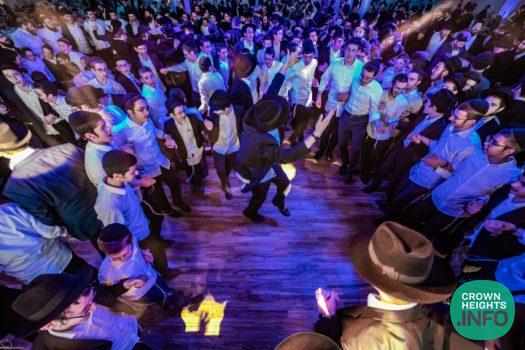
Hakhel Lessons For Education
Question: I am a teacher in a local non-Chabad day-school. I was invited to give a lecture on education in my community. As 5783 is a “Year of Hakhel,” I would like to incorporate the theme of Hakhel into my lecture. What are the aspects of Hakhel which are connected to chinuch?
Answer: Firstly, I commend you for having the mindset to connect everything that you are involved with to “Hakhel.” As this is the “theme of the year.” everything should be connected to this special idea. Secondly, in the Sichos and letters of the Rebbe, one of the main themes of Hakhel – besides the fundamental idea of unity – is education.
Before we quote some of the sichos and letters, let us begin with two central quotes concerning the Mitzvah of Hakhel:
1) The Pesukim of Hakhel (Devarim 31:10-13):
“At the end of [every] seven years, at an appointed time, in the Festival of Sukkos …. Assemble the people: the men, the women, and the children, and your stranger in your cities, in order that they hear, and in order that they learn and fear the Hashem, your G-d, and they will observe to do all the words of this Torah.”
2) The Gemara’s explanation as to why we bring the children (Chagigah 3a):
“Assemble the people, the men and the women and the little ones”. This verse is puzzling: If men come to learn, and women, who might not understand, come at least to hear, why do the little ones come? They come in order to give a reward to those who bring them, [I.e., [Hashem credits those who bring their children to the assembly. ]
[There is actually a beautiful explanation of the Sfas Emes regarding the reward that parents receive for bringing their children to “Hakhel”. It is not only the reward in the world-to-come, rather it is the reward of seeing Chassidishe Nachas from their children in this world!
Parents who make the effort to expose their children to positive experiences in life, despite the fact that the child ostensibly does not gain anything concrete from the experience at the time, will be rewarded. Merely making the effort to expose them to a positive environment will allow the parents to reap rewards in the future.]
The Rebbe learns many lessons about the importance of chinuch from this mitzvah. The following are a few themes that you can discuss with your community:
(1) The importance of education:
“The mitzvah of Hakhel shows the value the Torah puts into educating young children. We see that the reward of the parents’ personal learning from the king of the Jewish people is not enough, rather in order to receive the ultimate reward, it is by bringing the children (as a form of chinuch) to the Beis Hamikdash.” (Likkutei Sichos Vol. 15 p. 133; fn 58).
The Rebbe continues to quote from commentaries that learn from the Mitzvah of Hakhel that it is a Mitzvah to bring your children to Yeshiva and Shul to receive a Torah-true education.
(2) Education is not just for children:
“It is clear that the Mitzvah of Hakhel stresses the importance of educating young children. This does not only teach us the importance of teaching people which are young in years, but it also includes those adults which are “children” when it comes to their knowledge of Yiddishkeit and they do not even know to ask about Judaism. We must work hard to go out and gather them together and teach them what the Torah is and what mitzvos are. The learning should be permeated with the fear of Hashem, in a way that it will impress on them to actually follow the ways of the Torah.” (Igros, Vol. 32 page 197; #11,303).
(3) Supporting Jewish education:
“It is my hope that those gathered at the dinner of the Yeshiva will act in the “spirit of Hakhel” in a practical way. This is expressed by strengthening and expanding our commitments to the educational institutions which teach Torah in your community.” (Likkutei Sichos vol. 9 p. 378)










